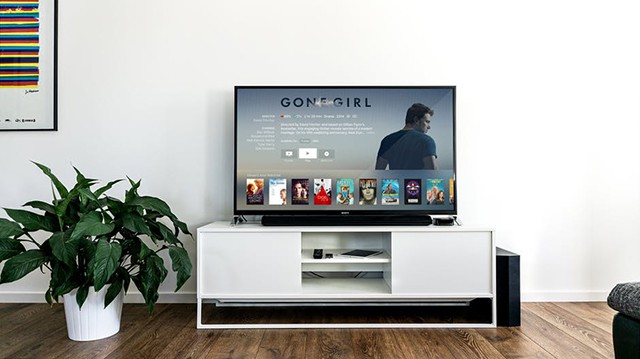Here’s What’s Happening With the Proposed Netflix Tax
Published June 15, 2017 at 3:50 pm

Anyone remember seeing this short election ad back in 2015?
Putting the obvious edits that were inserted aside, Stephen Harper said he would oppose any kind of tax on online streaming services, Netflix being one of them, accusing his opponents (NDP leader Tom Mulcair and now PM Justin Trudeau) of supporting such taxation measures.
Many people thought at the time, like the individual who put this ad up on his YouTube page, that it was just another scare tactic from Scary Stephen Harper. Well, many of you out there might cringe, but the former Prime Minister may have been onto something.
According to this report, the Liberal MPs on the Heritage committee of the House of Commons were set to call for a five per cent tax on broadband Internet services to fund Canada’s media industries, which are struggling to adapt to technological changes and evolving consumer habits.
Now, it appears we can all breathe a sigh of relief, as this Global News report indicates that the dreaded tax on the high-speend internet services that make streaming possible will not be implemented.
The committee spent more than a year studying Canada’s media industry, in which companies have been steadily losing advertising revenue and market shares to Facebook, Netflix, Google and other international giants. The tax was intended to apply to high-speed Internet services that allow for the streaming of music, movies and TV shows, but not to slower and less costly services.
The Liberals had previously spoken out against a “Netflix tax” that would force the streaming service to contribute to the Canadian Media Fund (CMF).
But even though the news is good, this proposal is just another example of the consequences of the disruptive economy affecting the traditional one. It is reminiscent of the move brought forward during the Uber deliberations in Mississauga streamlining the licensing procedures for taxicab drivers along the same lines for Uber drivers, in order to try to level the playing field for the traditional taxicab industry. Governments of all levels are struggling to figure out how to make sure both the traditional economy and the new ‘disruptors’ operate on an equal footing.
Naturally, the political risk for the governing Liberals was that, should they have moved forward, they would have hit people where it hurts. Years before, even dangling just trial balloons like new taxes on small meals at diners or Tim Horton’s was enough to send people up in arms, and cause the government to back down. Today, the vast majority of people use online streaming services for their entertainment, and putting a tax on such services is sure to rile the feelings of many voters, especially millennials or younger people who voted for the Trudeau Liberals in the last election.
Do you think the Liberals were wise to back off? Or should they have moved forward in order to better protect local industry?
insauga's Editorial Standards and Policies advertising





